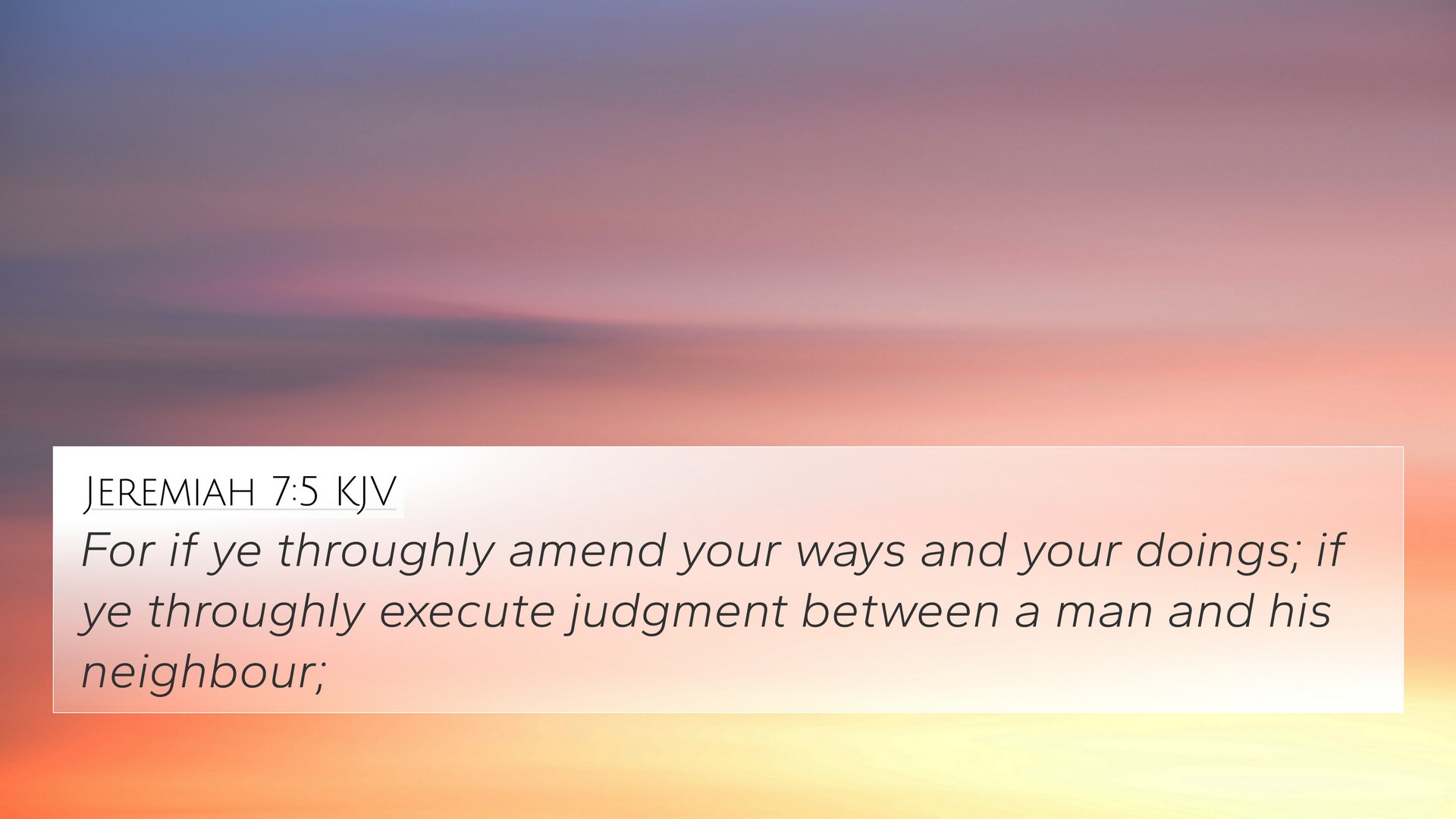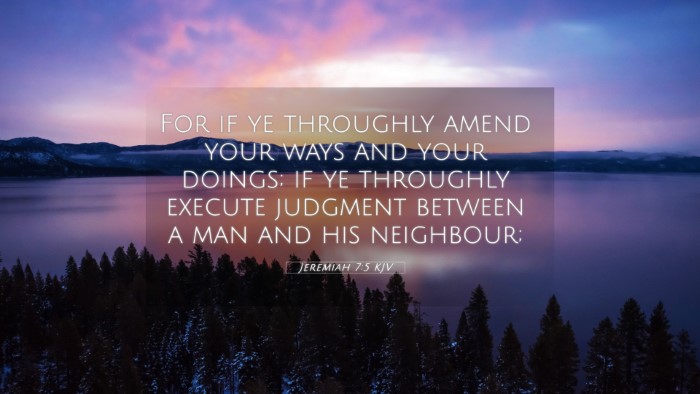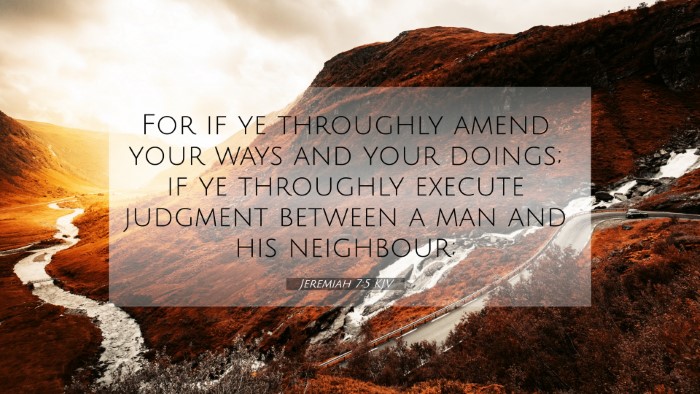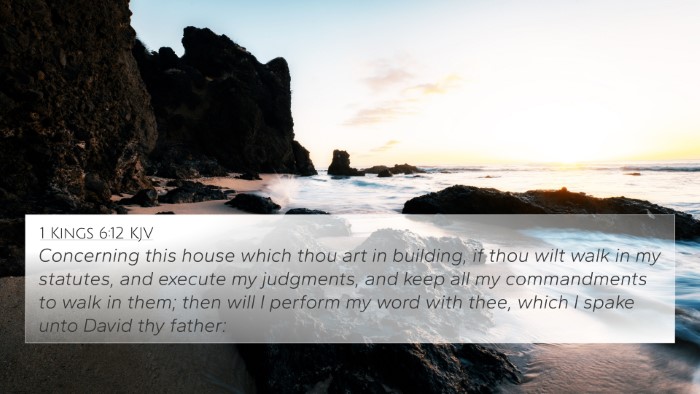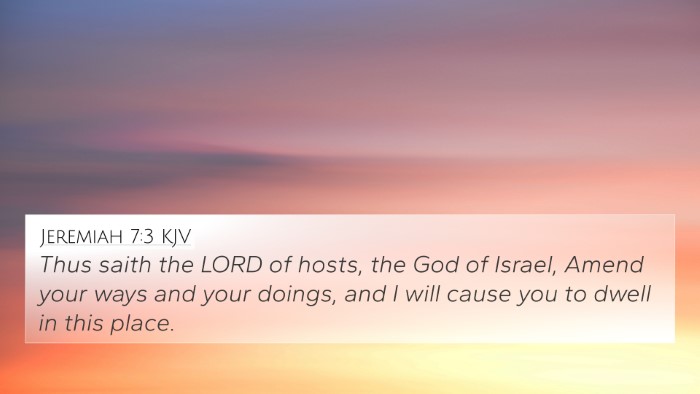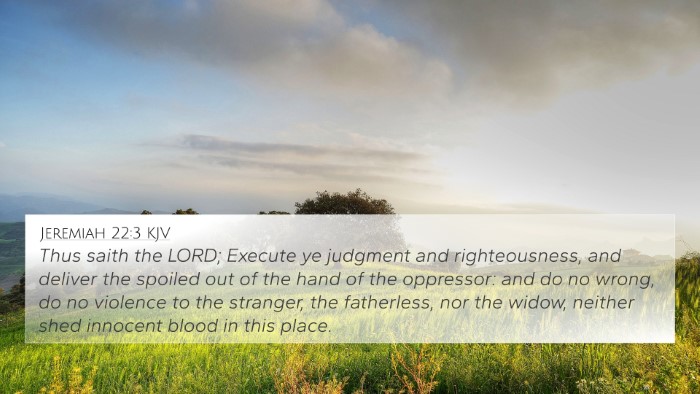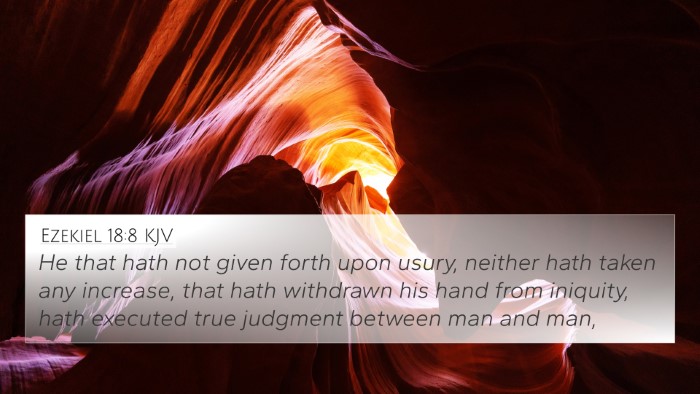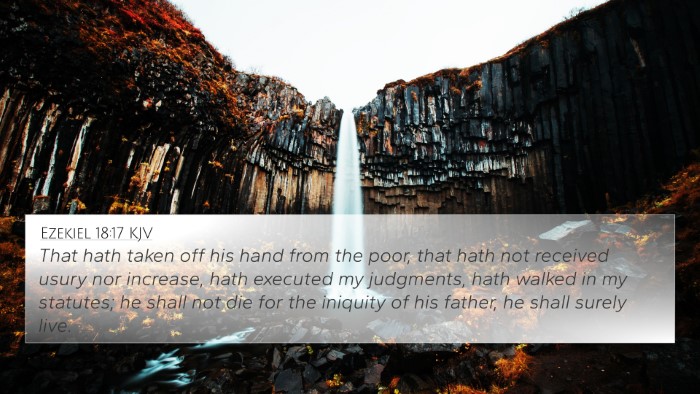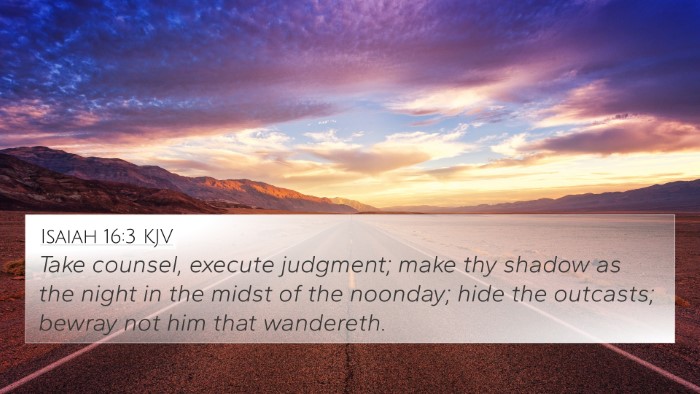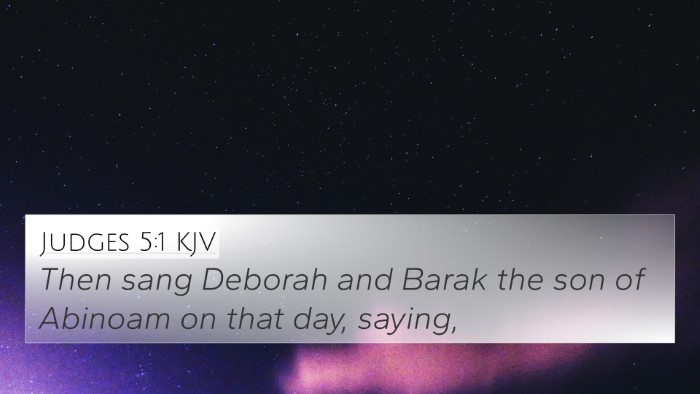Understanding Jeremiah 7:5
Jeremiah 7:5 states: "For if you thoroughly amend your ways and your doings, if you thoroughly execute judgment between a man and his neighbor." This verse carries profound implications about moral and ethical behavior within the community, emphasizing the importance of genuine repentance and justice.
Summary of Insights
-
Importance of Genuine Repentance: Matthew Henry notes that the call to amend one’s ways indicates a need for sincere repentance rather than merely outward forms of religion. Jeremiah emphasizes that true change comes from a heart willing to forsake wrongdoing.
-
Call for Justice: Albert Barnes highlights that executing judgment between individuals is a reflection of God's character. The prophet stresses social justice, demanding that individuals prioritize fairness in their interactions.
-
Community Responsibility: Adam Clarke expresses that this verse acknowledges the communal aspect of faith. It encourages believers to uplift their community through rightful actions and behaviors, emphasizing collective responsibility.
Cross-References
This verse can be linked to several others within the Scriptures that emphasize similar themes of repentance and justice. Here are some significant cross-references that enhance the understanding of Jeremiah 7:5:
- Micah 6:8: "He has shown you, O man, what is good; and what does the Lord require of you but to do justly, to love mercy, and to walk humbly with your God?"
- Isaiah 1:17: "Learn to do good; seek justice, rebuke the oppressor; defend the fatherless, plead for the widow."
- Zechariah 7:9: "Thus says the Lord of hosts: ‘Execute true justice, show mercy and compassion everyone to his brother.’"
- Matthew 3:8: "Therefore bear fruits worthy of repentance." This highlights the necessity of actions that mirror genuine change in one’s life.
- Luke 6:31: "And just as you want men to do to you, you also do to them likewise," underscoring the moral imperative of treating others fairly.
- James 1:27: "Pure and undefiled religion before God and the Father is this: to visit orphans and widows in their trouble, and to keep oneself unspotted from the world."
- Romans 12:19: "Beloved, do not avenge yourselves, but rather give place to wrath; for it is written, 'Vengeance is Mine, I will repay,' says the Lord," reminding believers of God’s justice.
Thematic Connections
By comparing Jeremiah 7:5 with the aforementioned texts, one can illustrate thematic connections around the necessity of justice and repentance:
-
Repentance and Transformation: The need for genuine transformation is echoed throughout both the Old and New Testaments, highlighting how faith must translate into action.
-
The Role of Justice in Faith: Cross-referencing these verses demonstrates a biblical theme that justice and mercy are critical components of a life devoted to God.
Tools for Bible Cross-Referencing
To study these connections further, one can utilize various tools for cross-referencing, including:
- Bible Concordance: A helpful index that allows one to find verses based on keywords.
- Bible Cross-Reference Guides: Systems that provide connections and thematic links between scriptures.
- Cross-Reference Bible Study: Methods that facilitate in-depth study through understanding relationships between texts.
Conclusion
Jeremiah 7:5 calls both individuals and communities to moral accountability and informed justice. By cross-referencing with other biblical texts, readers can delve into the interconnected themes of righteousness and transformation that lie at the heart of the Scriptures. Engaging with these connections will deepen one’s understanding and commitment to living a life aligned with God’s values.
